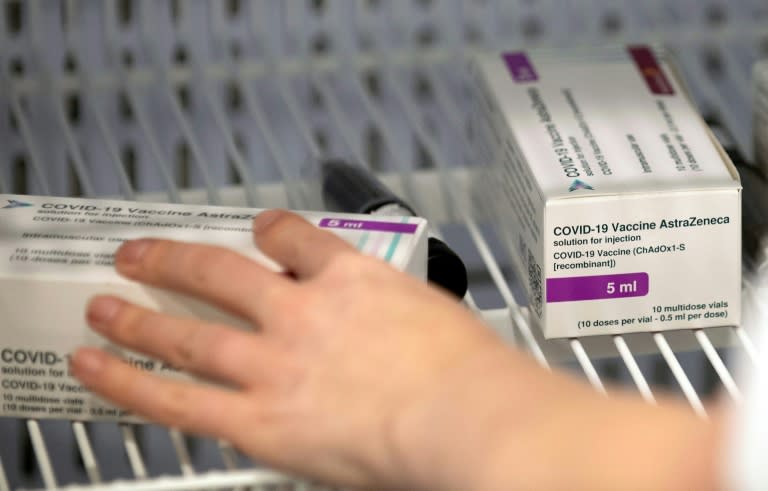The topic of a sometimes bitter feud between the EU and Britain, the AstraZeneca Covid-19 vaccine has also sparked debate about its effectiveness among the elderly.
Although the European Medicines Agency last week recommended the vaccine to adults of all ages, several countries have recommended that the injection should not be given to the elderly.
Germany has already said it will not advise people over 65 to get it.
The Italian medicines agency approved the vaccine for all adults on Saturday, but has recommended alternatives for people over 55.
“It is clear that seniors will not be vaccinated with this vaccine,” Michal Dworczyk, the Polish government official responsible for vaccinations, told reporters Monday.
And France will be the next EU country to announce its own recommendation on the AstraZeneca vaccine, which has been shown in clinical trials to be 62 percent effective at preventing Covid-19.
The main problem concerns the lack of data among older subjects.
The developers AstraZeneca and Oxford University were transparent in revealing that less than 10 percent of those who were tested the vaccine were 65 or older.
Only 450 participants were over 70.
This compared to more than 40 percent of the participants in the Pfizer / BioNTech vaccine studies who were over 55.
– ‘Misunderstanding’ –
This does not mean that the AstraZeneca vaccine does not work well in the elderly, but rather that there is little data to prove it.
“It’s sad to see people misunderstand the situation here,” said Peter English, a consultant in communicable disease control.
“They confuse the lack of evidence with the evidence of absence.”
The EMA said there was insufficient data to know for sure how effective the AstraZeneca vaccine is in older people.
However, protection is expected as an immune response is seen in this age group, he said.
It concluded that the vaccine “can be used in older adults”, as is already the case in Great Britain, which was the first country to approve its use.
Still, it has remained cautious, noting that “currently available clinical trial data does not allow an estimate of the vaccine’s efficacy in individuals over 55 years of age.”
– ‘Demand management’ –
The scientific debate about effectiveness takes place in a political discussion about logistics.
The British-Swedish pharma giant said on Sunday it would increase its vaccine deliveries to the EU by 30 percent, hinting at an announcement a week earlier that it could only deliver a quarter of the doses originally promised to the bloc.
French President Emmanuel Macron waded into line last week, citing reports that the vaccine was “virtually ineffective” for people over 65.
“What I can officially tell you today is that the initial results we have are not encouraging for 60-65 year old people regarding AstraZeneca,” he said.
In response, John Bell, one of the Oxford vaccine developers, told the BBC that he expected Macron’s comments to be “a bit of demand management.”
Disease specialist Eric Caumes pointed out Monday that several countries, including France, are vaccinating people over 80 with the Pfizer / BioNTech vaccine.
“We don’t know its efficacy in this age group,” he told BFMTV.
pr / pg / mh / ach
